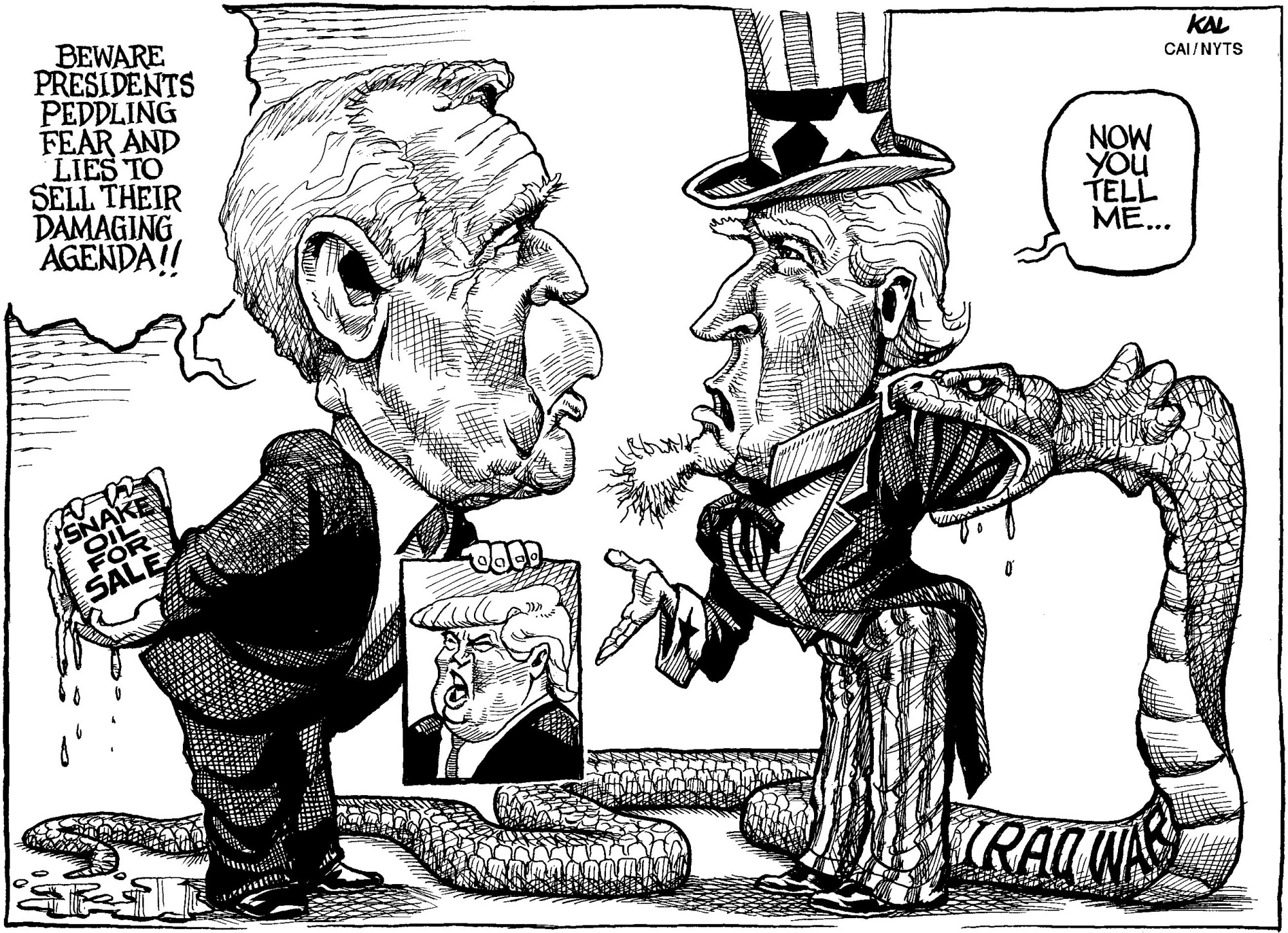Last month, the New York Times marked the 15th anniversary of the U.S.-led war against Iraq with a poignant column by Sinan Antoon, an Iraqi novelist living in the United States, titled "Fifteen Years Ago, America Destroyed My Country." Antoon opposed both Saddam Hussein's brutal dictatorship and the 2003 U.S.-led invasion, which plunged the country into chaos, inflamed ethnic tensions and killed hundreds of thousands of civilians. By destabilizing the region, the war enabled the rise of the Islamic State group, which at its height occupied a substantial slice of Iraqi territory, beheading its opponents, attempting genocide against the Yazidi minority and spreading terrorism around the world.
The war to overthrow Saddam was, beyond doubt, a tragic blunder. Antoon maintains that it was also a crime. If that is correct, its perpetrators are still at large. Few Americans will take seriously the assertion that President George W. Bush and other members of his administration — including Vice President Dick Cheney, Secretary of Defense Donald Rumsfeld and John Bolton, recently appointed by President Donald Trump as his new national security adviser — are war criminals. Nor will many Britons think of Prime Minister Tony Blair in that light. Yet the case for saying that they committed a crime is surprisingly strong.
The idea that it is a crime to initiate a war of aggression goes back at least to 1919, when the Treaty of Versailles provided for Kaiser Wilhelm II to stand trial for "a supreme offense against international morality." No such trial took place after World War I, but after World War II, initiating and waging wars of aggression was one of four charges on which, during the Nuremberg Trials, the International Military Tribunal convicted and sentenced to death 12 Nazi leaders, among them Reichsmarschall Hermann Goring, Foreign Minister Joachim von Ribbentrop and Field Marshal Wilhelm Keitel.



















With your current subscription plan you can comment on stories. However, before writing your first comment, please create a display name in the Profile section of your subscriber account page.